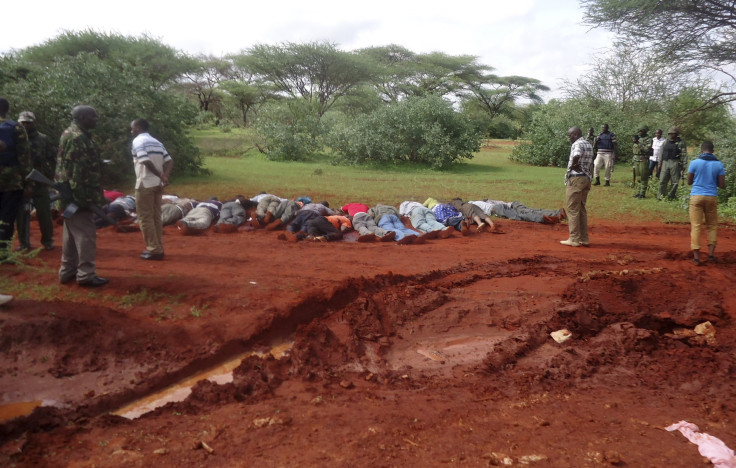Al-Shabaab Executes 28 Who Can't Recite Quran; Kenyan President Says Somali Militants Atempting To Start Religious War

Al-Shabab militants hijacked a bus in Kenya Saturday and executed 28 passengers who were unable to recite a Quran passage. Kenyan President Uhuru Kenyatta said the attack was a bid by the Somali terrorist group to ignite a religious war.
The bus was ambushed along Kenya's northern border with Somalia in what the group said was payback for Kenya's anti-extremist efforts along the coast, the Wall Street Journal reported. The Journal said the attack sparked worries unrest in Somalia could destabilize Kenya, a stabilizing force in the region and East Africa's economic hub.
The attack occurred near Mandera as the bus made its way toward Nairobi. The hijackers demanded the 60 passengers aboard recite the Shahada, a tenet of Islam, Agence France-Presse reported. The 28 -- 19 men and nine women -- who were unable to recite the passage were shot to death.

Al-Shabab claimed responsibility in a broadcast from a radio station in Somalia, saying it was a response to Kenyan security forces' raids on four mosques along the Kenyan coast, AFP said.
“The Mujahedeen intercepted a bus, which had on board a group of Christians that enjoyed the killing and the maiming of Muslims,” al-Shabab spokesman Sheik Ali Mohamed Rageh said in a statement read on Radio Andulus, according to Bloomberg.
The Kenyan military retaliated with airstrikes against an al-Shabab camp in Somalia, killing 45 rebels.
Kenyatta told the BBC the bus attack was a "heinous crime" designed to "create conflict between Muslims and non-Muslims. The aim is to create a religious war, a religious strike in Kenya."
© Copyright IBTimes 2025. All rights reserved.






















